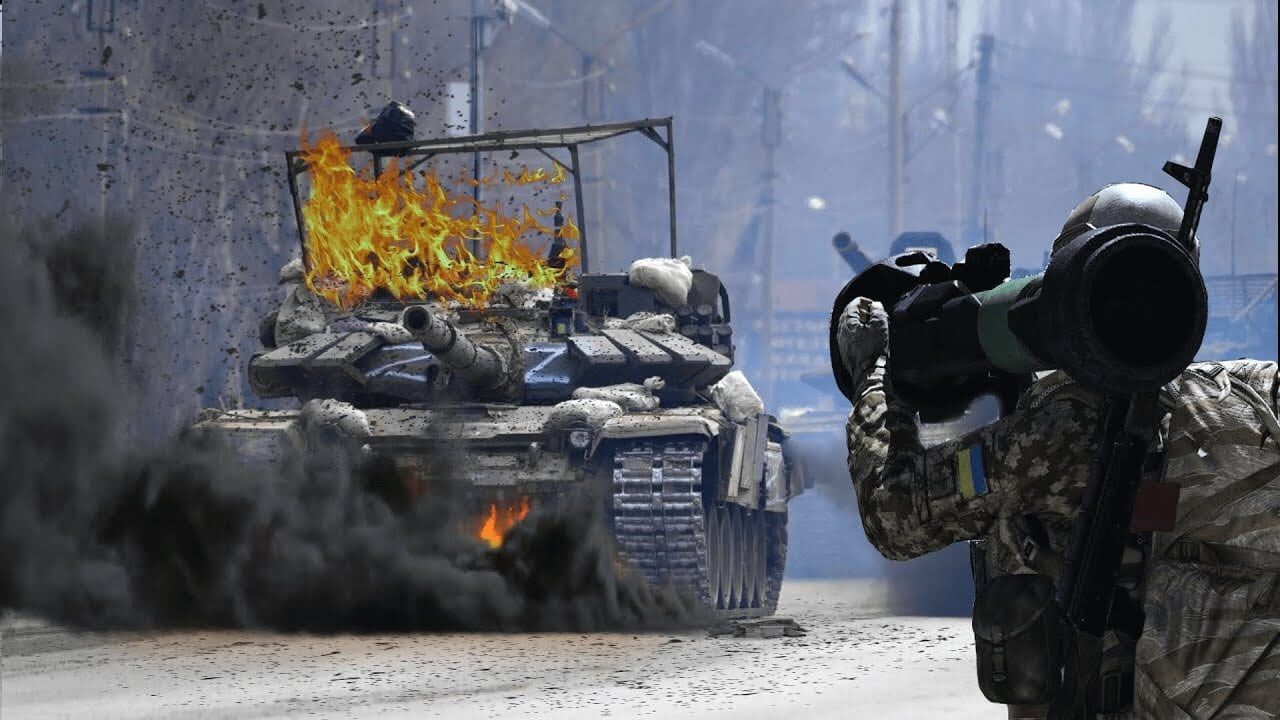We’re past the one-year mark since Russia’s brutal invasion of Ukraine. Thus far we have yet to see any new Russian moves. Just more of the same brutality.
No new Russian surprises could be a good thing, but with serious caveats. They are still there, still creating death and destruction increasingly focused on civilians. Perhaps due to the apparent lack of anything new from Russia’s forces, at least two major cable news outlets in the U.S. covered the Murdaugh trial live. BBC, by contrast, broadcast extensive video coverage of the carnage in Ukraine and described those who have suffered greatly.
The resemblance to the Battle of Britain went unmentioned but was obvious. The video scenes could have come from 80-year-old newsreels of London, Coventry, and other cities. Then, like now, the U.S. pledged all possible assistance short of direct involvement. FDR was severely constrained by isolationist sentiment and forced to employ more than a few clever devices, like Lend-Lease and Neutrality Patrols, to support Great Britain in its critical hours. Then, as now, it was not a stable posture, destined to long endure. A happy ending was far from assured, but the heroism of the Brits and their Royal Air Force brought it home.
Today’s posture over Ukraine is also not at all stable. Harry Kazianis’ recent piece on these pages asks the important questions. What is our policy? How does this end? Are we waiting for another Battle of Tannenberg to take a combatant off the field? This is stasis in the middle of a roiling danger area. A prolonged stalemate is not a stable end.
President Biden and the U.S. face a difficult challenge. Keeping 30 NATO nations, and more applying to join, together is no small task. Our domestic political challenges of course remain unresolved. There is good reason to keep complex deliberations secret.
But wait, there’s more!
China’s unrelenting military buildup amid expansive extra-territorial claims – e.g., undisputed historical sovereignty over the South China Sea – alarms and antagonizes our allies and friends in Asia. China’s coercion of Taiwan increases in frequency and severity. China’s subjugation of Hong Kong reveals their disdain for international agreements. North Korea continues its prohibited missile testing program and development of nuclear weapons. And then there is Russia and its belligerent activities around the disputed Kurile Islands. We do not have the luxury of a singular focus.
Already there are worries that the defense equipment and supplies going to Ukraine draw down on needed means for deterrence of conflict in Asia. It’s a mathematical certainty that drawing down on our war reserves decreases the size of those reserves, barring energetically expanded defense industry programs to replace equipment, supplies, and ammunition.
And herein may lie a stratagem that can break the status quo and introduce a new policy to the Ukraine issue. Sometimes a hard problem can be aided by making it bigger. This may be such a time. Treat the support of Ukraine as part of a growing global challenge.
Attack the weapons and supply shortages in both Europe and Asia, and better support Ukraine, through an emergency multinational defense industrial program. Create a new “Arsenal of Democracy” among willing nations. Franklin Roosevelt said: “Powerful enemies must be outfought and outproduced.” So, it is now. Ukraine has the fighting in hand. We owe them prompt and efficient material and training support. Fewer lengthy negotiations, more gear, and support.
It is a fact that we, our allies, and our friends face rising threats in Europe and Asia. We can directly affect the situation in Ukraine, and enhance our deterrence posture in Asia, with new, coordinated, multinational defense production. Get the highly competent Ukraine military what they need before they must repeatedly ask for it. To paraphrase a famous Pentagon statement: “sometimes you have to fight the war you have, not the one you wish you had”. We have this one in Ukraine. Freedom and global order are at stake there, and in Asia.
Eliminate the material shortages around the globe and leave no doubt, anywhere, that we have. In the U.S., this calls for a newly empowered industrial policy official. Congressional intervention will be needed to act on our acquisition regulations to allow the awarding of long-term contracts that will give industry the confidence to expand production and add shifts to the line. The goal, in the U.S. as well as other countries, is to simultaneously increase the military goods available to Ukraine as well as replenish U.S. and allied stores in Asia.
Given the demonstrated threat in Europe and Asia, it’s time to quit admiring the problem and act.
Wallace C. Gregson served as a former assistant secretary of defense for Asian and Pacific Security Affairs (2009-11) and is currently a senior advisor at Avascent International. Gregson last served as the Commander, U.S. Marine Corps Forces Pacific; Commanding General, Fleet Marine Force, Pacific; and Commander, U.S. Marine Corps Bases, Pacific, headquartered at Camp H. M. Smith, Hawaii. He is a senior advisor to General Atomics Electromagnetic Systems.

